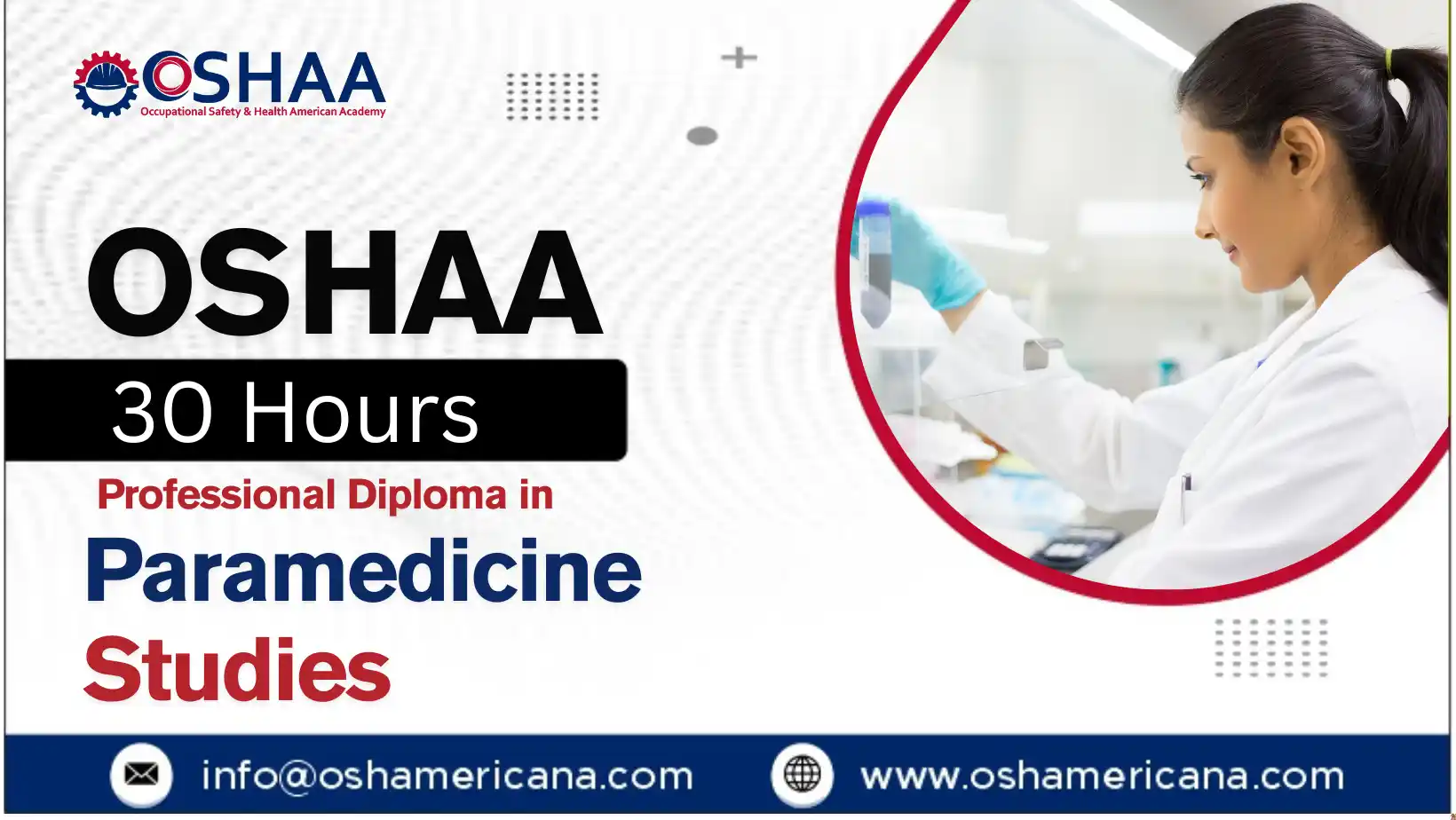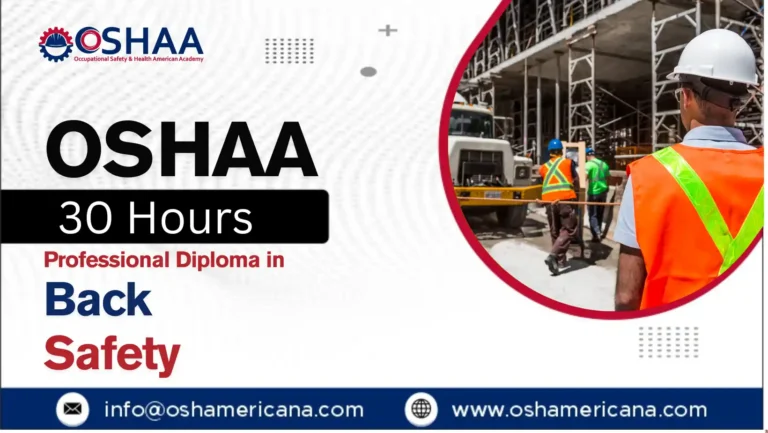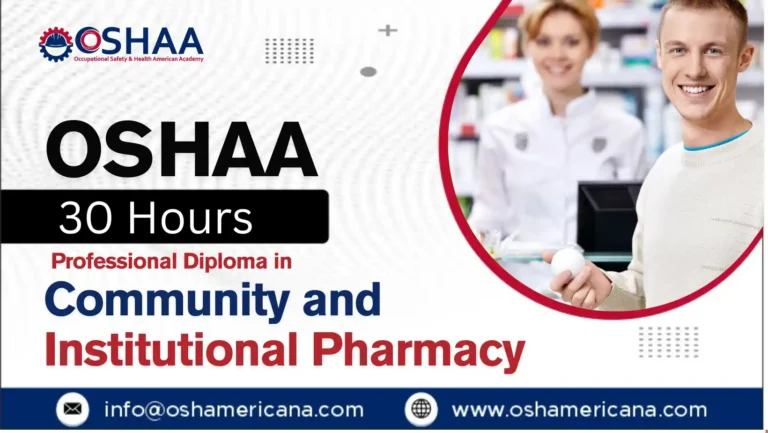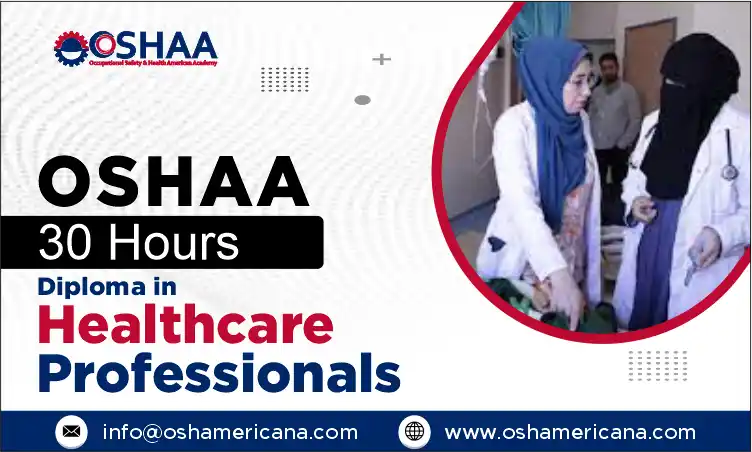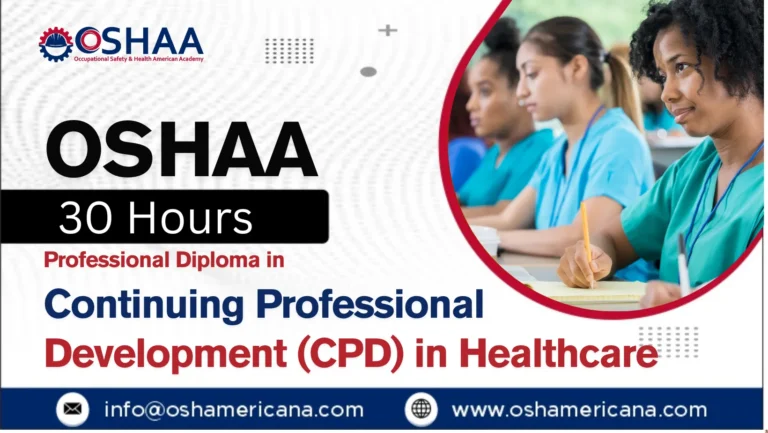The OSHA 30-Hours Professional Diploma in Paramedicine Studies is a comprehensive training programme tailored for individuals aspiring to build a career in emergency medical services. Aligned with UK professional standards and international health and safety guidelines, this diploma delivers critical knowledge and practical skills essential for effective response in pre-hospital medical emergencies.
The curriculum of the OSHA 30-Hours Professional Diploma in Paramedicine Studies covers a wide range of subjects including patient assessment, trauma management, emergency pharmacology, airway management, and cardiopulmonary resuscitation (CPR). Integrated within these modules are OSHA’s key safety principles, which reinforce the importance of workplace safety, hazard recognition, and risk mitigation in high-pressure environments.
Participants will gain hands-on experience through simulation-based scenarios that mirror real-life emergencies. This practical approach enhances decision-making abilities, critical thinking, and the application of life-saving techniques under time-sensitive conditions.
The OSHA 30-Hours Professional Diploma in Paramedicine Studies stands out as a dual-purpose qualification, bridging vital emergency response skills with globally recognised safety training. For participants dedicated to serving in emergency medical roles, this diploma offers an excellent foundation and a pathway to continued professional development.
OSHAA 30-Hours Professional Diploma in Paramedicine Studies
Study Units
Learning Outcomes
Introduction to Paramedicine and Emergency Medical Services (3 Hours)
- Understand the role and responsibilities of a paramedic within emergency medical services
- Identify the structure and scope of pre-hospital care systems
- Recognise the importance of communication, documentation, and teamwork in emergency settings
OSHA Standards and Workplace Safety in Emergency Environments (4 Hours)
- Explain the purpose and scope of OSHA regulations in healthcare and emergency settings
- Identify common workplace hazards and apply strategies for risk prevention
- Demonstrate knowledge of personal protective equipment (PPE) and safe operational procedures
Patient Assessment and Primary Survey Techniques (5 Hours)
- Conduct thorough scene assessments to ensure safety and control hazards
- Perform primary and secondary surveys to evaluate patient condition
- Interpret vital signs and identify immediate life-threatening conditions
Airway Management and Ventilation Procedures (3 Hours)
- Identify airway obstructions and assess airway patency
- Demonstrate the use of airway adjuncts and ventilation devices
- Apply techniques to manage airways in conscious and unconscious patients
Trauma Management and Stabilisation (4 Hours)
- Recognise various types of trauma including blunt, penetrating, and spinal injuries
- Apply principles of haemorrhage control, splinting, and spinal immobilisation
- Prioritise trauma interventions based on severity and patient condition
Medical Emergencies: Recognition and Intervention (6 Hours)
- Identify signs and symptoms of common medical emergencies such as cardiac, respiratory, diabetic, and neurological events
- Implement appropriate treatment protocols for acute medical conditions
- Understand the pharmacological and non-pharmacological interventions used in medical emergencies
CPR, AED, and Basic Life Support Protocols (3 Hours)
- Demonstrate correct techniques for adult, child, and infant CPR
- Operate an automated external defibrillator (AED) in accordance with current guidelines
- Apply basic life support protocols in single and team responder scenarios
Emergency Pharmacology and Medication Administration (2 Hours)
- Understand the indications, contraindications, and side effects of commonly used emergency medications
- Demonstrate safe practices in medication handling and administration
- Apply correct dosage calculations and delivery methods in pre-hospital care
- Provides a dual-focus qualification integrating emergency medical care with internationally recognised OSHA safety standards
- Equips participants with essential life-saving skills applicable in a wide range of emergency scenarios
- Enhances employability in healthcare, emergency response, disaster relief, and occupational safety sectors
- Offers practical, scenario-based training to build confidence in real-time decision-making and crisis management
- Meets professional development requirements for those seeking to work in regulated or safety-critical environments
- Strengthens understanding of legal, ethical, and procedural frameworks in pre-hospital emergency care
- Supports progression to advanced paramedicine qualifications or specialised roles in emergency medical services
- Increases readiness to respond effectively in high-risk, high-pressure environments with competence and composure
- Encourages a safety-first mindset essential for reducing workplace injuries and improving patient outcomes
- Delivered in alignment with UK and international healthcare and safety training benchmarks
The OSHA 30-Hours Professional Diploma in Paramedicine Studies is designed for participants who are committed to building a career in emergency medical services and wish to enhance their knowledge of both clinical care and occupational safety. This course is particularly suitable for:
- Participants seeking to enter the field of paramedicine or pre-hospital emergency care
- Healthcare support personnel looking to broaden their emergency response capabilities
- Firefighters, rescue workers, and security personnel requiring certified first response training
- Individuals working in high-risk industries who need to integrate medical response with workplace safety standards
- Participants preparing for roles in disaster response, humanitarian aid, or remote healthcare services
- Professionals aiming to fulfil continuing professional development (CPD) requirements within safety-critical roles
- Participants interested in progressing to advanced training in paramedicine, emergency care, or occupational health
This diploma is ideal for those who value both clinical excellence and regulatory safety compliance in their professional practice.

